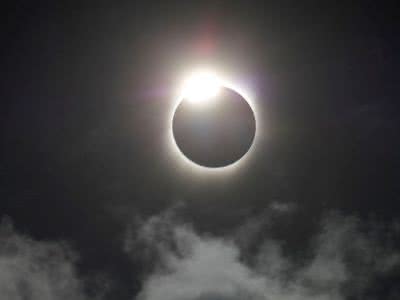Significado de la palabra eclipse en español
¿Qué significa eclipse en inglés? Descubre el significado, la pronunciación y el uso específico de esta palabra con Lingoland
eclipse
US /ɪˈklɪps/
UK /ɪˈklɪps/

Sustantivo
1.
eclipse
an obscuring of the light from one celestial body by the passage of another between it and the observer or between it and its source of illumination
Ejemplo:
•
A total solar eclipse will be visible next year.
Un eclipse solar total será visible el próximo año.
•
The lunar eclipse cast a reddish glow on the moon.
El eclipse lunar proyectó un brillo rojizo sobre la luna.
2.
eclipse, pérdida de importancia
a loss of significance, power, or prominence in relation to another person or thing
Ejemplo:
•
The rise of digital photography led to the eclipse of film cameras.
El auge de la fotografía digital llevó al eclipse de las cámaras de película.
•
His earlier achievements suffered an eclipse by his later, more significant work.
Sus logros anteriores sufrieron un eclipse por su trabajo posterior, más significativo.
Sinónimo:
Verbo
eclipsar, superar
to make something less important or noticeable by being much better or more impressive
Ejemplo:
•
Her brilliant performance threatened to eclipse all the other actors.
Su brillante actuación amenazaba con eclipsar a todos los demás actores.
•
The new skyscraper will eclipse all other buildings in the city.
El nuevo rascacielos eclipsará a todos los demás edificios de la ciudad.
Sinónimo: